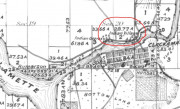In The Unexceptional Case of Haiti: Race and Class Privilege in Postcolonial Bourgeois Society (University Press of Mississippi, 2022), Philippe-Richard Marius recasts the world-historical significance of the Saint-Domingue Revolution to investigate the twinned significance of color/race and class in the reproduction of privilege and inequality in contemporary Haiti. Through his ethnography, class emerges as the principal site of social organization among Haitians, notwithstanding the country’s global prominence as a “Black Republic.” It is class, and not color or race, that primarily produces distinctive Haitian socioeconomic formations.
When Marius arrived in Port-au-Prince to begin fieldwork for this monograph, to him and to legions of people worldwide, Haiti was axiomatically the first Black Republic. Descendants of Africans did in fact create the Haitian nation-state on January 1, 1804, as the outcome of a slave uprising that defeated white supremacy in the French colony of Saint-Domingue. Haiti’s Founding Founders, as colonial natives, were nonetheless to varying degrees Latinized subjects of the Atlantic. They envisioned freedom differently than the African-born former slaves, who sought to replicate African nonstate societies. Haiti’s Founders indeed first defeated native Africans’ armies before they defeated the French. Not surprisingly, problematic vestiges of colonialism carried over to the independent nation.
Marius interrogates Haitian Black nationalism without diminishing the colossal achievement of the enslaved people of Saint-Domingue in destroying slavery in the colony, then the Napoleonic army sent to restore it. Providing clarity on the uses of race, color, and nation in sociopolitical and economic organization in Haiti and other postcolonial bourgeois societies, Marius produces a provocative characterization of the Haitian nation-state that rejects the Black Republic paradigm.
Philippe-Richard Marius is assistant professor in the Department of Sociology and Anthropology at the College of Staten Island (CUNY). Marius has conducted extensive fieldwork in Haiti. He is writer, producer, and codirector of the film A City Called Heaven.
Aleem Mahabir is a PhD candidate in Geography at the University of the West Indies, Mona, Jamaica.
Learn more about your ad choices. Visit megaphone.fm/adchoices
Support our show by becoming a premium member! https://newbooksnetwork.supportingcast.fm/anthropology
Visit New Books in Anthropology for the podcast. There is something wrong with this RSS-feed. Lorenz, antropologi.info



